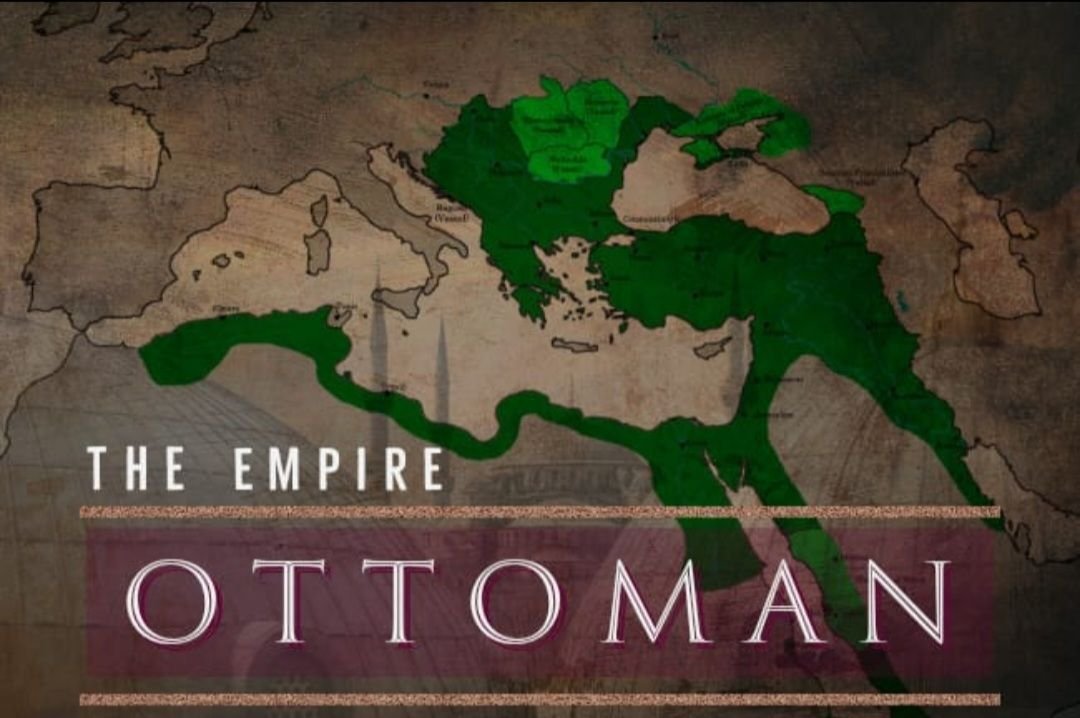In The Name of Allah, The Most Merciful, The Bestower of Mercy.
Tawhid – The Original Religion of Humankind
Allah, The Most High, stated:
إِنَّ ٱللَّهَ هُوَ ٱلرَّزَّاقُ ذُو ٱلْقُوَّةِ ٱلْمَتِينُ
And I did not create the jinns and humans except to worship Me. I desire not from them any provision, and nor do I desire that they feed Me. (On the contrary), it is Allāh who is the Great Provider, the possessor of mighty strength. [Adh-Dhariyat 56-58] [1]
Allah said:
وَلَقَدْ بَعَثْنَا فِى كُلِّ أُمَّةٍ رَّسُولًا أَنِ ٱعْبُدُوا۟ ٱللَّهَ وَٱجْتَنِبُوا۟ ٱلطَّٰغُوتَ فَمِنْهُم مَّنْ هَدَى ٱللَّهُ وَمِنْهُم مَّنْ حَقَّتْ عَلَيْهِ ٱلضَّلَٰلَةُ فَسِيرُوا۟ فِى ٱلْأَرْضِ فَٱنظُرُوا۟ كَيْفَ كَانَ عَٰقِبَةُ ٱلْمُكَذِّبِينَ
And verily, We have sent among every nation a Messenger (saying): Worship Allah (Alone), and avoid (or keep away from) from all false deities, i.e. do not worship anything besides Allah. ” Then of them were some whom Allah guided and of them were some upon whom the straying was justified. So travel through the land and see what was the end of those who denied (the truth). [An-Nahl. 36]
Allah said:
كَانَ ٱلنَّاسُ أُمَّةً وَٰحِدَةً فَبَعَثَ ٱللَّهُ ٱلنَّبِيِّۦنَ مُبَشِّرِينَ وَمُنذِرِينَ وَأَنزَلَ مَعَهُمُ ٱلْكِتَٰبَ بِٱلْحَقِّ لِيَحْكُمَ بَيْنَ ٱلنَّاسِ فِيمَا ٱخْتَلَفُوا۟ فِيهِ وَمَا ٱخْتَلَفَ فِيهِ إِلَّا ٱلَّذِينَ أُوتُوهُ مِنۢ بَعْدِ مَا جَآءَتْهُمُ ٱلْبَيِّنَٰتُ بَغْيًۢا بَيْنَهُمْ فَهَدَى ٱللَّهُ ٱلَّذِينَ ءَامَنُوا۟ لِمَا ٱخْتَلَفُوا۟ فِيهِ مِنَ ٱلْحَقِّ بِإِذْنِهِۦ وَٱللَّهُ يَهْدِى مَن يَشَآءُ إِلَىٰ صِرَٰطٍ مُّسْتَقِيمٍ
Mankind were one community and Allah sent Prophets with glad tidings and warnings, and with them He sent the Scripture in truth to judge between people in matters wherein they differed. And only those to whom (the Scripture) was given differed concerning it after clear proofs had come unto them through hatred, one to another. Then Allah by His Leave guided those who believed to the truth of that wherein they differed. And Allah guides whom He wills to a Straight Path. [Al-Baqarah. 213]
Allah said:
وَمَا كَانَ ٱلنَّاسُ إِلَّآ أُمَّةً وَٰحِدَةً فَٱخْتَلَفُوا۟ وَلَوْلَا كَلِمَةٌ سَبَقَتْ مِن رَّبِّكَ لَقُضِىَ بَيْنَهُمْ فِيمَا فِيهِ يَخْتَلِفُونَ
Mankind were but one community (i.e. on one religion – Islamic Monotheism), then they differed (later), and had not it been for a Word that went forth before from your Lord, it would have been settled between them regarding what they differed]. [Yunus. 19]
Ibn Abbas, may Allah be pleased with him and his father, said:
Between Nuh and Adam, all of them used to be upon the true path [worshipping Allah alone], then they differed and started worshipping idols, false deities and images, then Allah sent Messengers with clear proofs and evidences. [2]
Shirk first started amongst the people of Nuh when they exaggerated (the status) of the righteous people and turned away from the call of their Prophet [Nuh] out of pride. They said: “You shall not leave your gods, nor shall you leave Wadd, nor Suwa’, nor Yaghuth, nor Ya’uq, nor Nasr”. [Nuh. Ayah 23]
Imam Al-Bukhari, may Allah have mercy upon him, said:
It has been narrated from Ibn Abbas that these were the names of pious people amongst the people of Nuh, and when they died, Shaytan inspired their people to (prepare) and place idols at the places where they used to sit, and to call those idols by their names. They did so, but did not worship them until those people (who initiated them) had died and the origin of the idols had become obscure, whereupon people began worshipping them”. [3]
All prophets and messengers were Muslims as they submitted to Allah and worshipped Him alone without ascribing partners to Him in worship. Read here: https://salafidawahmanchester.com/2020/10/18/one-must-call-himself-a-muslim-if-he-truly-follows-the-path-of-the-prophets-and-messengers/
This is the faith that Allah designated for both humanity and Jinn, aligning perfectly with the sound innate disposition. Allah said:
فَأَقِمْ وَجْهَكَ لِلدِّينِ حَنِيفًا فِطْرَتَ ٱللَّهِ ٱلَّتِى فَطَرَ ٱلنَّاسَ عَلَيْهَا لَا تَبْدِيلَ لِخَلْقِ ٱللَّهِ ذَٰلِكَ ٱلدِّينُ ٱلْقَيِّمُ وَلَٰكِنَّ أَكْثَرَ ٱلنَّاسِ لَا يَعْلَمُونَ
So, set you “O Muhammad” your face towards the religion of pure Islamic Monotheism, worshipping Allah alone by devoting all forms of worship purely for Him. The natural state which Allah determined and upon which He created and moulded mankind. Let there be no change in the creation of Allah “Islamic Monotheism. That is the straight religion, but most of men do not know. [Ar-Rum 30]
Iyaa Ibn Himar, may Allah be pleased with him, reported that the Prophet, peace and blessings of Allah be upon him, said:
Verily, my Lord has commanded me to teach you what you do not know, from what he has taught me this day, “All wealth I bestowed upon them is lawful. I have created all of My servants inclined to worship me alone, but devils come to them who turn them away from their religion. They outlaw what has been made lawful for them, and they command them to associate partners with Me for which no authority has been revealed”. Verily, Allah looked at the people of the earth and He detested all of them, Arabs and non-Arabs alike, except for remnants of the people of the Book”. [Ṣaḥīh Muslim 2865]
All of humanity, the descendants of Adam and Hawa, were created with the purpose of worshiping Allah alone. Throughout history, Allah has sent messengers to guide us back to this divine path whenever we have strayed, often due to the deceptions of shaytan. In light of this truth, the only course left for us is to follow the final Prophet, Muhammad, peace and blessings of Allah be upon him. In this context, concepts like colonization or decolonization become irrelevant; what truly matters is the religion established by our Creator. Ultimately, individuals have been given the free will to choose to submit to Islam, worship Allah alone and follow His last Prophet, Muhammad, peace and blessings of Allah be upon him. They are not forced or coerce, but if they choose other than Islam, they have made a choice for which they will be held accountable in the Hereafter. Allah said:
لَآ إِكْرَاهَ فِى ٱلدِّينِ قَد تَّبَيَّنَ ٱلرُّشْدُ مِنَ ٱلْغَىِّ فَمَن يَكْفُرْ بِٱلطَّٰغُوتِ وَيُؤْمِنۢ بِٱللَّهِ فَقَدِ ٱسْتَمْسَكَ بِٱلْعُرْوَةِ ٱلْوُثْقَىٰ لَا ٱنفِصَامَ لَهَا وَٱللَّهُ سَمِيعٌ عَلِيمٌ
There is no compulsion in religion. Verily, the Right Path has become distinct from the wrong path. Whoever disbelieves in all false deities and believes in Allah (by worshipping Him alone), he has indeed grasped the most trustworthy handhold that will never break. And Allah is All-Hearer, All-Knower. [Al-Baqarah 256]
Allah said:
وَمَن يَبْتَغِ غَيْرَ ٱلْإِسْلَٰمِ دِينًا فَلَن يُقْبَلَ مِنْهُ وَهُوَ فِى ٱلْءَاخِرَةِ مِنَ ٱلْخَٰسِرِينَ
And whoever seeks a religion other than Islam, it will never be accepted of him, and in the Hereafter he will be one of the losers. [Aal Imran 85]
Therefore, what is essential to understand is that an individual faces a choice: to either adhere to the traditions of ancestors after the arrival of the Prophets and Messengers or to wholeheartedly submit to the path of Prophets and Messengers, with Muhammad being the final Messenger, peace and blessings of Allah be upon all of them. True beliefs must align with the revelations given to the Prophets and Messengers, rather than the customs of forebears that contradict their teachings. Sadly, some African Americans and African intellectuals have attempted to muddy this straightforward issue. As African Muslims, we are called to follow the path of the final Prophet in both belief and practice, just like any Muslim around the globe. Cultural customs from any group, whether Arab or non-Arab, are acceptable as long as they do not conflict with the final divine message. It is perfectly fine for individuals from different backgrounds to adopt and celebrate the cultural practices of others, provided these do not contradict the final revelation. We will share insights from scholars on this topic shortly, but for now, it is crucial to reiterate that one must choose between the path of the final Prophet or the ancestral traditions that stand in opposition to divine guidance. Historically, the latter has been a common fallacy among nations when Messengers urged them to return to the right path. Al-Allamah Salih al-Fawzan, may Allah preserve him, stated:
Indeed, polytheistic (practices and beliefs) have become rife within this Ummah due to detachment from (he teachings of)the Qur’an and the Sunnah, blindly following ancestors without proper guidance, elevating the status of deceased figures by constructing (shrines and tombs) over their graves, and due to being ignorant of the islam that Allah instructed His Messenger, peace and blessings be upon him, as Umar Ibn al-Khattab, may Allah be pleased with him, said: “The very foundations of Islam will crumble one by one when a generation arises that is unaware of the ignorance that preceded Islam.” Furthermore, the proliferation of Shubhah—doubts that masquerade as truth but are fundamentally false—has led many astray. Among these misconceptions is the argument used by those who engage in Shirk, both in the past and present, claiming legitimacy by adhering to the beliefs of their forefathers. Allah said:
وَكَذَٰلِكَ مَآ أَرْسَلْنَا مِن قَبْلِكَ فِى قَرْيَةٍ مِّن نَّذِيرٍ إِلَّا قَالَ مُتْرَفُوهَآ إِنَّا وَجَدْنَآ ءَابَآءَنَا عَلَىٰٓ أُمَّةٍ وَإِنَّا عَلَىٰٓ ءَاثَٰرِهِم مُّقْتَدُونَ
And similarly, We sent not a warner before you (O Muhammad) to any town (people) but the luxurious ones among them said: “We found our fathers following a certain way and religion, and we will indeed follow their footsteps.” [Az-zukhruf 23]
Therefore, following ancestors is only praiseworthy if they were upon the truth. Allah [The Most High] said that Yusuf, peace be upon him, said:
وَٱتَّبَعْتُ مِلَّةَ ءَابَآءِىٓ إِبْرَٰهِيمَ وَإِسْحَٰقَ وَيَعْقُوبَ مَا كَانَ لَنَآ أَن نُّشْرِكَ بِٱللَّهِ مِن شَىْءٍ ذَٰلِكَ مِن فَضْلِ ٱللَّهِ عَلَيْنَا وَعَلَى ٱلنَّاسِ وَلَٰكِنَّ أَكْثَرَ ٱلنَّاسِ لَا يَشْكُرُونَ
And I have followed the religion of my fathers, – Ibrahim (Abraham), Ishaque (Isaac) and Ya’qub (Jacob), and never could we attribute any partners whatsoever to Allah. This is from the Grace of Allah to us and to mankind, but most men thank not (i.e. they neither believe in Allah, nor worship Him). [Yusuf. 38]
This doubt was embedded in the souls of the polytheists and they utilised it to oppose the call of the Prophets. Allah said:
وَلَقَدْ أَرْسَلْنَا نُوحًا إِلَىٰ قَوْمِهِۦ فَقَالَ يَٰقَوْمِ ٱعْبُدُوا۟ ٱللَّهَ مَا لَكُم مِّنْ إِلَٰهٍ غَيْرُهُۥٓ أَفَلَا تَتَّقُونَ
فَقَالَ ٱلْمَلَؤُا۟ ٱلَّذِينَ كَفَرُوا۟ مِن قَوْمِهِۦ مَا هَٰذَآ إِلَّا بَشَرٌ مِّثْلُكُمْ يُرِيدُ أَن يَتَفَضَّلَ عَلَيْكُمْ وَلَوْ شَآءَ ٱللَّهُ لَأَنزَلَ مَلَٰٓئِكَةً مَّا سَمِعْنَا بِهَٰذَا فِىٓ ءَابَآئِنَا ٱلْأَوَّلِينَ
And indeed We sent Nuh (Noah) to his people, and he said: “O my people! Worship Allah! You have no other Ilah (God) but Him (Islamic Monotheism). Will you not then be afraid (of Him i.e. of His Punishment because of worshipping others besides Him)?” But the chiefs of those who disbelieved among his people said: “He is no more than a human being like you, he seeks to make himself superior to you. Had Allah willed, He surely could have sent down angels; never did we hear such a thing among our fathers of old]. [Al-Muminoon. 23-24]
So, they used as proof that which their ancestors were upon to oppose that which their Prophet Nuh brought. Allah informed us that the people of Sali said to him: “Do you (now) forbid us the worship of what our fathers have worshipped?”[Hud. 62]
The people of Shu’aib said: “Does your Salat (prayer) (i.e. the prayers which you offer has spoiled your mind, so you) command that we leave off what our fathers used to worship]. [Hud. 87]
Allah informed us about Ibraheem and his people when he silenced them with clear proofs: “What do you worship?” They said: “We worship idols, and to them we are ever devoted”. He said: “Do they hear you, when you call (on them)? “Or do they benefit you or do they harm (you)?” They said: “Nay, but we found our fathers doing so”. [Ash-Shu’ara 70-74]
This is the nature of disbelief! Its people do not have any proof by way of which to repel the truth except these flimsy proofs. [4]
Therefore, a sensible individual understands the reasons behind the misdirection of nations, which often stems from prioritizing the traditions of their ancestors over the teachings of Allah’s Messengers. If you were to inquire about the beliefs of our ancestors from 2000 years ago, we would struggle to categorize them as polytheists, Christians, or Jews. However, what we do know with absolute certainty is that Allah sent Messengers to every nation, including Prophet Isa, peace be upon him, who preached the oneness of Allah, Tawhid. Following his time, Allah sent Muhammad, peace and blessings of Allah be upon him, to both Arabs and non-Arabs, addressing all of humanity and even the Jinn. If you were to ask again about the faith of our forefathers during Muhammad’s era, we could only guess based on the historical accounts regarding that region of West Africa. However, what we do know is that Allah sent Muhammad as the final Messenger, and many sincere followers of the Scriptures acknowledged his Prophethood and accepted Islam. This historical fact is well established. Subsequently, Islam spread throughout Africa, leading to our birth into Muslim families by the Will of Allah. Islam is practiced independently of ancestral customs that contradict divine revelation. This approach does not equate to succumbing to Arab colonialism. Whether it stems from African, Arab, European, or any other cultural background, any practice that stands in opposition to divine revelation is not embraced.
The Messenger, peace and blessings of Allah be upon him] said,
“Indeed, Allah [The Most High] has removed from you the pride of the pre-Islamic period and its boasting about ancestors. One is only a pious believer or a wretched sinner. You are sons of Adam and Adam (was created from) dust. Let the people abandon boasting about their ancestors, for they are merely fuel in Jahannam; or they will become more insignificant in (the sight of) Allah than the beetle which rolls dung with its nose”. [5]
The Messenger [peace and blessings of Allah be upon him] said: “Whoever is held back by his deeds, his (nobility) of lineage will not push him forward”. Imam An-Nawawi, may Allah have mercy upon him, said:
“Its meaning is that the one whose deeds are deficient and he does not catch up with the performers of (good) deeds, then it is obligatory upon him not to crown himself with nobility of lineage and the virtues of his forefathers, whilst he is lagging behind in (performing good) deeds”. [6]
Imam Abdul Azeez Bin Baz [may Allah have mercy upon him] said:
“It is obligated to every Muslim that he does not depend on custom; rather he presents it to the pure Islamic legislation (to be judged), so whatever the Islamic legislation affirms is permissible and whatever it does not affirm is impermissible. The customs of the people are not proof to determine the lawfulness of anything. All the customs of the people in their countries or tribes must be presented to the Book of Allah and the Sunnah of His Messenger [peace and blessings of Allah be upon him] for judgement, so whatever Allah and His Messenger made permissible is permissible, and whatever they forbid, then it is obligatory to abandon it even if it is the custom of the people”. [7]
Imam Muhammad Bin Salih Al-Uthaymeen, may Allah have mercy upon him, said:
“The customs cannot make something that is not legislated (in the divine revelation) as something legislated, because of Allah’s statement: [ It is not Al-Birr (piety, righteousness, etc.) that you enter the houses from the back] [Surah Al-Baqarah. 189], despite the fact that it was something they took as their custom and considered it to be an act of righteousness. Whoever takes something as a custom and believes that it is an act of righteousness, then it should be presented to Allah’s divine legislation [i.e. to be judged]”. [8]
Imam Muhammad Bin Salih Al-Uthaymeen, may Allah have mercy upon him, also said:
“Extremism in related to customs is stringent adherence to old customs and not diverting to what is better than them. As for if the customs are equal in benefit [i.e. the ones judged to be permissible by the divine legislation], then a person remaining upon what he is upon would be better than going along with the new (or emerging) customs”. [9]
It’s undeniable that Allah sent Prophets and Messengers and provided Scriptures to lead humanity, culminating in the final message delivered by Muhammad, peace and blessings of Allah be upon all of them. Various nations, tribes, and clans accepted Islam, with non-Arabs emerging as significant leaders and scholars. Al-Allamah Salih Aala Ash-Shaikh, may Allah safeguard him, stated:
“When the Muslims conquered the different regions of the earth and Islam spread, the affair became as if it started from the non-Arabs, until the people of Persia and other non-Arabs became the scholars and the Imams of the mosques, and people acquired knowledge from them. It is recorded in Islamic history that many non-Arabs led the Muslims in knowledge, in issuing religious verdicts and many affairs. Take for example Abu Hanifah, may Allah have mercy on him, who was not an Arab, and Imam Al-Bukhari [may Allah have mercy on him] and how his book became an upright example, and there’s none amongst the Muslims except that he (or she) knows Imam Abu Abdillah Muhammad Bin Ismaa’eel Al-Bukhari. And consider other examples – besides Al-Bukhari and Abu Hanifah – amongst the Imams of Islam.
So when Islam came with its implementation, it abolished the differences that were initiated by the people and those non-Arabs became the leaders and Imams of the Arabs; why? Because they carried the religion, raised the banner of pure Islamic monotheism – there is no deity worthy of worship except Allah and Muhammad is the Messenger of Allah, and because there is no distinction in virtue between a non-Arab and an Arab, except through fear of Allah. When the Muslims disciplined themselves with Islam, there was no dispute between them regarding social class by way of that pre-Islamic dispute and distinction, because indeed neither did they accept leadership nor give precedence to anyone based on this; rather they accepted everyone because people are equal in this affair. Quraish’s rulership, the Umayyad rulership and the Abbasid rulership ended; then the rulership of the Mamluks arose and thereafter the rulership of Banee Uthman – meaning in the beginning when it was upright; so the Muslims obeyed them and they became the leaders and rulers, because the Muslims saw that there was welfare for the people in doing so (based on the texts of the Qur’an and the Sunnah, and understanding of the Sahabah). Therefore, class differentiation and its practice was abolished from the beginning; rather no one had any reservation in implementing Islam. So, Islamic history attests to the implementation of this great principle [i.e. sound equality]”. [10]
The subsequent decline and stagnation can be attributed to a deviation from the fundamental tenets of Islam, which has given rise to numerous challenges, including tribalism and various societal dilemmas. Read: https://abukhadeejah.com/state-of-ummah-causes-of-weakness-means-of-rectification-ebook/
However, it is essential to recognise that Muslim scholars have remained acutely aware of these issues throughout Islamic history and continue to engage with them in contemporary discourse. The blame does not lie with Islam itself, despite the misguided assertions of some ignoramuses and certain pan-Africanists advocating for a so-called decolonisation of religion. Such claims reveal a profound ignorance, as they overlook the original faith bestowed by the Creator and fail to address the true root of the problem: a departure from pure monotheism and the teachings of the Prophets, the last of whom is Muhammad. Furthermore, it is important to acknowledge that regardless of an individual’s chosen faith, they will be held accountable for their choices after the Prophets and Messengers have conveyed the message of Islamic Monotheism. However, any form of oppression against people is unequivocally condemned regardless of the race, social status or religion of the victims. The Messenger, peace and blessings of Allah be upon him, said that Allah, The Almighty, said: “O My servants, I have forbidden injustice for Myself and I have forbidden it among you, so do not oppress one another”. [Ṣaḥīḥ Muslim 2577]
The Messenger said: “Whoever would love to be delivered from Hellfire and admitted into Paradise, let him meet his end with faith in Allah and the Last Day, and let him treat people as he would love to be treated.” [Muslim 1844]
It is of utmost significance that any sense of injustice directed towards our race, clan, tribe, or nation does not disrupt our bond with Allah as Muslims. We must resist the allure of pan-Africanist ideologies that may lead us astray and jeopardize our eternal well-being under the guise of pride. Instead, let us embrace a path of piety rooted in the final revelation, for it is the true avenue to salvation. Allah said:
يَٰٓأَيُّهَا ٱلنَّاسُ إِنَّا خَلَقْنَٰكُم مِّن ذَكَرٍ وَأُنثَىٰ وَجَعَلْنَٰكُمْ شُعُوبًا وَقَبَآئِلَ لِتَعَارَفُوٓا۟ إِنَّ أَكْرَمَكُمْ عِندَ ٱللَّهِ أَتْقَىٰكُمْ إِنَّ ٱللَّهَ عَلِيمٌ خَبِيرٌ
O mankind, We have created you from a male (Ādam) and female (Eve) (making you all of equal lineage) and We made you into nations and tribes that you may know one another (and fulfil each other’s rights). Verily, the most honourable of you with Allāh is the most pious of you (and not the noblest in lineage or most affluent) (so do not be boastful and belittle others). Indeed, Allāh is all-Knowing, all-Aware.[11]
Allah said:
تِلْكَ ٱلدَّارُ ٱلْءَاخِرَةُ نَجْعَلُهَا لِلَّذِينَ لَا يُرِيدُونَ عُلُوًّا فِى ٱلْأَرْضِ وَلَا فَسَادًا وَٱلْعَٰقِبَةُ لِلْمُتَّقِينَ
That home of the Hereafter (i.e. Paradise), We shall assign to those who rebel not against the truth with pride and oppression in the land nor do mischief by committing crimes. And the good end is for the pious.[Al-Qasas 83]
Those who depart from this world while associating partners with Allah in worship or rejecting Allah and His final Messenger, without repentance, will face eternal failure. Allah has stated:
إِنَّهُۥ مَن يُشْرِكْ بِٱللَّهِ فَقَدْ حَرَّمَ ٱللَّهُ عَلَيْهِ ٱلْجَنَّةَ وَمَأْوَىٰهُ ٱلنَّارُ وَمَا لِلظَّٰلِمِينَ مِنْ أَنصَارٍ
Verily, whosoever sets up partners in worship with Allah, then Allah has forbidden Paradise for him, and the Fire will be his abode. And for the Zalimun (polytheists and wrong-doers) there are no helpers. [Al-Ma’idah 72]
Allah said:
وَمَن يَبْتَغِ غَيْرَ ٱلْإِسْلَٰمِ دِينًا فَلَن يُقْبَلَ مِنْهُ وَهُوَ فِى ٱلْءَاخِرَةِ مِنَ ٱلْخَٰسِرِينَ
And whoever seeks a religion other than Islam, it will never be accepted of him, and in the Hereafter he will be one of the losers. [Aal Imran 85]
Indeed, there is nothing wrong with either a Muslim or a non-Muslim standing up against oppression and exploitation. Therefore, we assert without hesitation that Africa has the right to call for an end to the post-colonial oppressive systems, just as they stood resolutely against the brutality and greed of colonialists during the colonial period. We agree wholeheartedly that Africa should not be subjected to exploitation through so-called financial aid, foreign military bases, sanctions, debt, NGOs, unequal trade, loans, and so forth. We also support the view that both African and Asian nations have the right to seek liberation from oppression through debt restructuring, strategic partnerships, diversified economies, de-dollarization, fair negotiations, food security, Agro-processing, solar energy, information technology, state-owned mines, pharmaceuticals, and more. It is a fact that other nations have pursued these initiatives for their economic stability, and similarly, Africa and others have the right to do the same. This is simply common sense and does not necessitate adherence to pan-Africanism or any other ideology that contradicts the final revelation ordained by the Creator, for which He will reward or punish humanity and Jinn in the Hereafter. Thus, we clearly state that the oppression and exploitation of African or Asian countries must cease. Our responsibility as African Muslims is to call our societies to Tawhid and Sunnah, following the path of the righteous predecessors, while also addressing any injustices faced by people. All praise is due to Allah for guiding us to Islam, which is indeed enough as a blessing. And Allah knows best.
Read: https://salafidawahmanchester.com/2024/11/16/the-uncivilised-third-world-and-developing-countries/
[1] https://www.thenoblequran.com/q/#/search/51_56
[2] Misbaah Al-Muneer Fee Ta’dheeb Tafseer Ibn Katheer
[3] Al-Bukhaari 4920
[4] An Excerpt from “Muhaadaraat Fil Aqeedah Wad-Dawah” 1/18-20. Slightly paraphrased]
[5] Saheeh Sunan Abee Dawud. Hadith Number 5116. Declared ‘Hasan’ by Imaam AlAlbaanee]
[6] Sharh Saheeh Muslim – (The Book Pertaining to the Remembrance of Allah, Supplication, Repentance and Seeking Forgiveness). Hadeeth Number 2699; Vol 17 page 18]
[7] Majmoo Al-Fataawaa 6/510]
[8] Tafseer Surah Al-Baqarah 2/299]
[9] Majmoo Al-Fataawaa 7/7]
[10] https://youtu.be/wRkeYjcJ728?si=V1cqv_4t4vL_uoVd
[11] https://www.thenoblequran.com/q/#/search/49_13




















